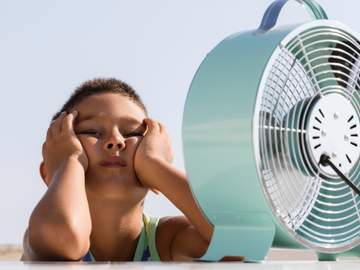
‘Sleeper cell’
Lookups for sleeper cell were high early in the week.
The attack on the church was the first of its kind in Syria in years, and comes as Damascus under its de facto Islamist rule is trying to win the support of minorities. As President Ahmad al-Sharaa struggles to exert authority across the country, there have been concerns about the presence of sleeper cells of extremist groups in the war-torn country.
—Abdulrahman Shaheen and Kareem Chehayeb, The Associated Press, 22 June 2025
As tensions escalate between the United States and Iran, the threat of sleeper cells has “never been higher,” according to U.S. Customs and Border Protection, although no specific or credible threats have yet emerged.
—Taylor Delandro and Rich McHugh, NewsNation, 23 June 2025
We define sleeper cell as “a terrorist cell whose members work under cover in an area until sent into action.” The relevant definition of cell is “a basic and usually small unit of an organization or movement.”
‘Obliterate’
Obliterate saw a spike in lookups after President Trump used the word with respect to the bombing of Iranian nuclear facilities.
U.S. military officials said Sunday that airstrikes caused ‘severe damage’ to three key nuclear sites in Iran, but it was too soon to determine the scope of its remaining nuclear capabilities, walking back President Trump’s declaration from the night before that the facilities had been ‘completely and totally obliterated.’
—Josh Dickey, The Wrap, 22 June 2025
A preliminary classified U.S. report says the American bombing of Iran’s nuclear sites sealed off the entrances to two of the facilities but did not collapse their underground buildings, according to officials familiar with the findings. The early findings conclude that the strikes over the weekend set back Iran’s nuclear program by only a few months, the officials said. … The findings suggest that President Trump’s statement that Iran’s nuclear facilities were obliterated was overstated, at least based on the initial damage assessment.
—Julian E. Barnes, et al., The New York Times, 24 June 2025
We define the relevant sense of obliterate as “to remove from existence; destroy utterly all trace, indication, or significance of.”
‘Socialism’
Lookups for socialism were also high this week, probably due to the victory of Zohran Mamdani, a democratic socialist, in the Democratic primary for mayor of New York City.
This was a reward for his consistent efforts to reach out to young, working-class voters who felt alienated by the Democratic party; Mamdani’s first viral video of this campaign came in November, when he interviewed New Yorkers who had voted for Trump about their cost-of-living frustrations. In the face of a skeptical public, Mamdani was even able to communicate democratic socialism as a universal politics rather than a niche identity or a dangerous ideology.
—Bhaskar Sunkara, The Guardian (London), 25 June 2025
Since the term socialism entered English around 1830, it has consistently referred to a system of social organization in which the ownership of property and the distribution of income are subject to social rather than private control. The conception of that control, however, has varied, and socialism has been interpreted in widely diverging ways, ranging from statist to libertarian, from Marxist to liberal. In the modern era, “pure” socialism has been seen only rarely and usually briefly in a few Communist regimes. Far more common are social democracies, such as Sweden and Denmark: democratically elected governments that employ some socialist practices but within a capitalist framework in the belief that extensive state regulation paired with limited state ownership produces a fair distribution of income without impairing economic growth.
‘Heat index’
Lookups for heat index rose with the temperatures this week.
The heat index, which factors in humidity and is included in many weather forecasts, provides a sense of how hot it really feels and what’s dangerous for prolonged exposure or strenuous activity. That means: Take it easy. Why? The National Oceanic and Atmospheric Administration says people should start exercising “caution” when the heat index reaches 80 to 90 degrees, and “extreme caution” from 90 to 103 degrees. It labels everything over 103 “danger” or “extreme danger.” (That has been this week in Vermont, by the way.)
—The Rutland (Vermont) Herald, 25 June 2025
We define heat index as “a value that indicates what the ambient temperature feels like to the human body and that is derived from a calculation using air temperature and relative humidity.”
‘Draft’
The 2025 NBA draft was held on Wednesday night, leading to a bounce in lookups for draft.
With the No. 1 overall pick of the 2025 NBA draft, the Mavs selected former Duke standout Cooper Flagg. In one season with the Blue Devils, Flagg won the John R. Wooden Award for being the top NCAA men’s basketball player. The team also reached the Final Four with Flagg leading the way.
—David Hoffman, USA Today, 26 June 2025
We define the relevant sense of the noun draft as “a system whereby exclusive rights to selected new players are apportioned among professional teams.” Draft can also be used as a verb to mean “to select (a professional athlete) by draft.”
Word Worth Knowing: ‘Culet’
It is likely, perhaps even certain, that none of our readers have ever thought “I wonder if the dictionary includes a word for ‘butt armor.’” Yet here we are, presenting you with the word culet (“a piece of plate armor covering the buttocks”), which comes from the diminutive of the French cul (“backside”), and has been in use since the 18th century.
They have for defensive armes, gorgets, curats , cutases, which some call culets, others the guard de reine, because it armeth the hinder parts, from the waste to the saddle crootch….
—Francis Grose, Military antiquities respecting a history of the English army, 1786




